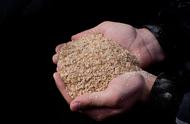Listen to the tape then answer this question.
听录音,然后回答问题。
Is Chang-woo Chinese
昌宇是中国人吗?
Good morning.
早上好。
Good morning, Mr. Blake.
早上好,布莱克先生。
This is Miss Sophie Dupont.
这位是索菲娅.杜邦小姐。
Sophie is a new student.
索菲娅是个新学生。
She is French.
她是法国人。
Sophie, this is Hans.
索菲娅,这位是汉斯。
He is German.
他是德国人。
Nice to meet you.
很高兴见到你。
And this is Naoko.
这位是直子。
She's Japanese.
她是日本人。
Nice to meet you.
很高兴见到你。
And this is Chang-woo.
这位是昌宇。
He's Korean.
他是韩国人。
Nice to meet you.
很高兴见到你。
And this is Luming.
这位是鲁明。
He is Chinese.
他是中国人。
Nice to meet you.
很高兴见到你。
And this is Xiaohui.
这位是晓惠。
She's Chinese, too.
她也是中国人。
Nice to meet you.
很高兴见到你。
New Words and Expressions:
Mr noun UK /ˈmɪs.tər/
a title used before the family name or full name of a man who has no other title, or when talking to man who holds a particular official position
(用在男子的姓、姓名或职务之前)先生
Mr Jones/Mr David Jones 琼斯先生/戴维•琼斯先生
[ as form of address ] Good afternoon, Mr Dawson.下午好,道森先生。
We're looking for a Mr (= a man called) George Smith. 我们在找一位名叫乔治•史密斯的先生。
It's an honour to have you here today, Mr President. 很荣幸您今天能来,总统先生。
good adjective UK /ɡʊd/
very satisfactory, enjoyable, pleasant, or interesting 令人满意的;令人愉快的;合意的;有趣的
a good book 一本好书
Did you have a good time at the party? 你在聚会上玩得开心吗?
The weather has been really good for the time of year. 就这个季节而言,这段时间的天气真是难得的好。
I've just had some very good news. 我刚得知一些特别令人开心的消息。
It's so good to see you after all this time! 分开这么长时间,见到你真是高兴!
morning noun [ C or U ] UK /ˈmɔː.nɪŋ/
time when the sun rises or you wake up until the middle of the day or lunch time
早晨; 上午
a beautiful/sunny/wet morning 美丽的/阳光明媚的/多雨的上午
I work three mornings a week at the bookshop. 我每周在书店工作3个上午。
She only works in the mornings. 她只在上午工作。
What's our schedule for this morning? 我们今天上午有什么安排?
I'd like an appointment for tomorrow morning, please. 请把时间约定在明天上午。
I'll see you on Saturday morning. 我星期六上午见你。
Miss noun UK /mɪs/
a title used before the family name or full name of a single woman who has no other title (用在女孩或未婚女子名前作为称呼)小姐
Dr White will see you now, Miss Carter.卡特小姐,怀特医生现在就见你。
new adjective UK /njuː/
recently created or having started to exist recently 新出现的;新兴的
a new car 新车
She's very creative and always coming up with new ideas. 她极富创造力,总会想出新点子。
What have they decided to name the new baby? 他们决定给刚出生的宝宝起什么名字?
What's new in the fashion world? 时尚界有什么新潮流?
We have to invest in new technology if we are to remain competitive. 如果我们要保持竞争力,就必须投资开发新技术。
student noun [ C ] UK /ˈstjuː.dənt/
a person who is learning at a college or university 大学生
a law/philosophy/medical student 法律/哲学/医学专业的学生
a graduate/postgraduate student (= one who has completed a first degree) 研究生
a full-time/part-time student 全职/兼职学生
a student teacher/nurse/doctor (= a person training to become a teacher, nurse, etc.) 师范生/学生护士/医学生
He was a student at the University of Chicago. 他是芝加哥大学的学生。
French adjective UK /frentʃ/
belonging to or relating to France, its people, or its language 法国的;与法国(或法语、法国人)有关的
French food/culture/music 法国食品/文化/音乐
We used to spend our holidays in a small French town. 我们曾在一个法国小镇里度假。
- n. the language that people speak in France, parts of Belgium and Canada, and other countries 法语
German noun UK /ˈdʒɜː.mən/
- the language of Germany, Austria, and parts of Switzerland 德语(德国、奥地利和瑞士部分地区的语言)
- a person from Germany 德国人
We have a group of Germans staying at the hotel. 我们宾馆住了一群德国人。
nice adjective UK /naɪs/
pleasant, enjoyable, or satisfactory 愉快的;美好的;满意的
Did you have a nice trip? 你旅途愉快吗?
Have a nice day/time! 祝你度过愉快的一天/过得愉快!
This milk doesn't smell very nice. 这种牛奶闻起来味道不太好。
meet verb UK /miːt/ met | met
to see and talk to someone for the first time (和…)初次见面;(与…)相识
They met at work. 他们是在工作时认识的。
I met her in Hawaii. 我在夏威夷认识了她。
Japanese adjective UK /ˌdʒæp.ənˈiːz/
- belonging to or relating to Japan, its people, or its language
日本的;日本人的;日本语的
the Japanese stock market日本的股票市场
Japanese art日本艺术
- the main language spoken in Japan 日语
Do you speak Japanese? 你说日语吗?
Korean adjective UK /kəˈriən/
- belonging to or relating to North or South Korea, their people, or their language 韩国的;韩国人的;韩语的
- a person from North Korea or South Korea 韩国人
Chinese adjective UK /tʃaɪˈniːz/ US /tʃaɪˈniːz/
- belonging to or relating to China, its people, or its language 中国的;中国人的
- n. a person from China 中国人
- n. the language spoken in China 中文
too adverb UK /tuː/
- more than is needed or wanted; more than is suitable or enough 太;过于
I'm too fat. 我太胖了。
I can't reach the shelf - it's (a bit) too high. 我够不着书架——它(有点儿)太高了。
There were (far) too many people for such a small room. 这么小的房间人太多了。
It's too hard (for me) to explain. 这太难了,(我)无法解释。
It was too expensive a desk for a child's room. 作为孩子房间的书桌,这个太贵了。
It's (all) too much (= more than I can deal with) - I can't stand it. 这太过分了,我受不了。
- (especially at the end of a sentence) in addition, also
(尤用于句末)也,还
I'd like to come too. 我也想来。
informal "I love chocolate." "Me too." “我喜欢巧克力。”“我也喜欢。”













